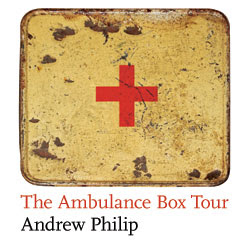I was fortunate enough to get a ticket to hear
Seamus Heaney read at the Book Festival yesterday. Given that the tickets had sold out within hours of being released to us mere mortals, I had surrendered all hope of hearing him until a colleague of mine suggested that there might be returns. So I made for Charlotte Square first thing yesterday and joined the queue before the gates were opened.
Fortunately, there were returns, and I spent a good hour and three quarters in blissful anticipation of hearing Famous Seamus, browsing the bookshop and buying
The Bloodaxe Book of Modern Welsh Poetry and
Menna Elfyn's
Cusan Dyn Dall/Blind Man's Kiss. I had had a ticket to hear her read with Ciaran Carson on Sunday but hadn't been able to make it, so was pleased to see the collection--not usual among bookshop wares in Scotland--was still on the shelves.
Heaney was as precise and as full of glowing phrases in person as in print. He read solely from his recent collection District and Circle. Although there are some fine poems in it, the book suffers a bit from covering much old ground. However, that retreading is a conscious action on Heaney's part. Perhaps it's a function of his age and standing. From the size of the audience and the book's reception, it seems he can happily afford to revisit old themes and approaches.
My main favourites from District and Circle--for instance, "A Shiver", "In Iowa"--weren't among the poems Heaney read. I couldn't help but feel that the best of those he chose to read were the translations/versions of Horace and Rilke, which are some of the best poems in the collection. (In the Q&A session, he said that he doesn't have any German, so I don't know how he did the Rilke unless that was undue modesty on his part.)
Heaney's most interesting comments in the Q&A session were in response to questions on the role of the poet in the responding to world events. Following
Robert Pinsky, he said that the poet's responsibility is "to answer what is happening". He formulated the aesthetic problem as being "how to relate your givens to the times" and instanced several different poetic approaches to the problem, among them Brecht's ("hopelessly reading the world" according to his political ideology), Wilfred Owen's and Isaac Rosenberg's.
This, perhaps, is where the reworking of the old ground finds its artistic validation: Heaney's primary givens--his agricultural Derry background; its linguistic, religious and cultural riches--are applied to the age of the "war on terror" rather than to the Ireland of the Troubles. This is Heaney extending the utterly local nature of those givens beyond the Irish social and political context to a global one. I say "primary givens" because it strikes me that the entirety of European literature is a secondary given for Heaney. But, not to be too Eurocentric, one must acknowledge that there is a locality to those givens too, which means that his use of them in the collection is essentially the same.
Anyway, enough of the analysis for now. After the reading, I joined the sizeable queue of devotees processing to the signing tent for the grace of the master's signature ("Seamus has to leave this festival to go to a party, so one book each, please," schoolma'amed Ruth Wishart). There he was, seated behind a desk on a raised platform with the line snaking towards him, the grateful snatching a few words with him, but never so many that the ever-attentive staff would chide them and hurry them on. Nothing I could think to say didn't seem foolish or banal, so I simply handed him my District and Circle with a mumbled thankyou (I didn't think I was that awed!) and looked him in the eye. He returned the gaze and the book with a valedictory "Good man!" I shuffled off, thinking warmly of the title poem of District and Circle and its recognition, as Heaney put it in the reading, of one artist to another.
![]()
![]()
![]()
![]()
![]()
![]()
![]()
![]()
![]()
![]()

.jpg)





